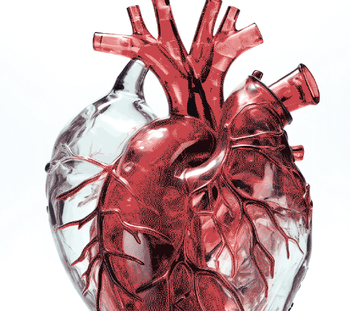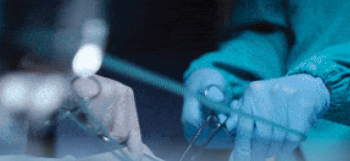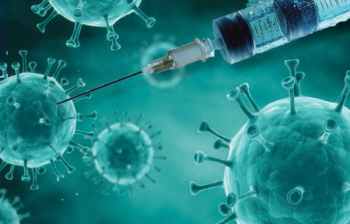
- October 2020 Supplement
Fecal Microbiota Transplant for the Treatment of Clostridioides difficile Infection: What's New in 2020 and Beyond
Fecal microbiota transplantation (FMT) is rapidly gaining interest and acceptance as a treatment for Clostridioides difficile infection. FMT involves the infusion of stool from a healthy donor to an infected patient with the goal of restoring a healthy microbiome.1 A wealth of anecdotal evidence and randomized clinical trials support the effectiveness of FMT for recurrent C difficile infection,2 and current guidelines from the Infectious Diseases Society of America (IDSA) and the Society of Healthcare Epidemiology of America (SHEA), as well as the European Consensus Guidelines, recommend the treatment as a second-line option.1 FMT meets the definition of both a biological product and a drug by the FDA and is subject to licensing requirements; however, the FDA is exercising enforcement discretion for investigational new drug requirements to ensure that patients not responding to standard treatments for C difficile infection have FMT as an option.3
Patient Considerations
Many case studies support the use of FMT, with reported success rates being between 77% and 100%, depending on the route of instillation.2,4,5 Results of existing randomized trials generally show a slightly lower efficacy than nonrandomized trials. For example, the results of one large randomized trial showed a 50% efficacy for FMT instilled via enema; however, after 2 instillations, this efficacy rose to 75%, and the efficacy for more than 2 instillations was about 90%.2
FMT is currently thought to be best suited for patients with recurrent C difficile infection. Based on the collective evidence from studies published through 2016, IDSA and SHEA recommend FMT for multiple recurrent infection of any severity after failure of standard antibiotic treatment.2 The European Consensus Guidelines similarly recommend FMT for both mild and severe recurrent infection.6
FMT may not be best suited for patients with inflammatory bowel disease (IBD), another condition associated with a disturbance in gut microbiota. Patients with IBD are at a higher risk of C difficile infection,2,7 so FMT appears to be less effective in treating recurrent C difficile infection in patients with IBD and also may be associated with flares of underlying disease activity.1 However, patients treated with FMT for IBD alone have been shown to have a better success rate with repeat transplants.6
Patients also should check with their insurance companies to understand their coverage and any co-pays and deductibles for FMT, especially if they will be seeing an out-of-network or out-of-state physician. Because FMT is often performed during a colonoscopy or sigmoidoscopy, most insurance companies will cover at least some of the testing and procedure costs.8
Overall Safety and Donor Considerations
Published reports suggest FMT is generally well tolerated and safe in the short term, with mostly self-limited mild to moderate adverse events (AEs).2,4,5 Commonly reported short-term AEs include diarrhea, constipation, abdominal cramping, fever, and belching. Perforation and gram-negative bacteremia have also been reported.6
An inherent risk with FMT is disease transmission through donor material; however, infections acquired from donor material generally appear to be limited. Two patients reportedly developed norovirus gastroenteritis after FMT despite using asymptomatic donors.2 More recently, another 2 patients treated with FMT from separate clinical trials were reported to be infected with extended-spectrum β-lactamase—producing Escherichia coli. One of the patients died, and both cases were linked with the same stool donor, thus raising the importance of enhanced screening to limit the risk of pathogen transmission.9 The FDA has subsequently recommended additional precautions for investigational FMT use, including careful screening for these bacteria in samples that have already been submitted as well as any newly submitted samples.10
To minimize the risk of transmissible infections and increase the likelihood of successful treatment, candidate donors should always be carefully evaluated. Evaluation includes taking a thorough medical history, including lifestyle habits, and screening blood and feces before stool donation. Any donors with transmissible pathogens, malignant diseases, autoimmune illnesses, or chronic infections should be prohibited from donating.2,6 Donors who have taken drugs that impair gut microbiota should be similarly disqualified. This may include recent exposure to antibiotics, immunosuppressants, chemotherapy, or chronic treatment with proton pump inhibitors.6 Although stool banks are the most common option for donor material, some patients use a donor whom they know, such as a close friend or a family member who is in good health.8,11
A 2020 safety alert from the FDA advised that severe acute respiratory syndrome coronavirus 2 may also be transmissible through FMT. The FDA recommended screening donors of any stool provided on or after December 1, 2019, asking questions to evaluate exposure risk and testing submitted samples for the virus.12
FMT Instillation and Patient Management
IDSA, SHEA, and European Consensus Guidelines recommend that patients not on antibiotic treatment receive a 3- to 4-day induction course of antibiotics before the administration of FMT to lower the amount of C difficile1,2,6; IDSA recommendations specifically suggest oral vancomycin.2
FMT can be administered via a number of routes, including nasoenteric tube, upper endoscopy, capsule, colonoscopy, sigmoidoscopy, and retention enema.1 The patient and their physician should work together to select the best route of instillation for FMT, taking into account success rates for different routes along with patient preference.2 The European Consensus Guidelines give specific recommendations for many of these instillation routes, including how to administer treatment and how to care for patients after the procedure to maximize the likelihood of success.6 For example, patients receiving FMT instillation via enema should retain the treatment for at least 30 minutes after the procedure. Keeping patients supine can lessen their need to defecate; repeating the procedure may improve the overall likelihood of success. The European Consensus Guidelines recommend short-term monitoring of patients for complications related to the procedure along with follow-ups for at least 8 weeks to monitor efficacy outcomes.6
FMT in Development
The high success rates of FMTs have inspired a number of clinical trials for new treatment formulations.8,13 Examples of some of these treatments are included in the Table.13-30 The stool bank operated by the nonprofit organization OpenBiome has formulations available for instillation via colonoscopy, sigmoidoscopy, enema; nasoenteric, gastric tube, or esophagogastroduodenoscopy; and oral capsules.12 Oral FMT administration bypasses some of the risks associated with other administration methods and can also be a more affordable option.10 The oral formulation by OpenBiome uses a frozen microbiota suspension from the fecal matter of a healthy donor.10 Meanwhile, SER-109, currently in later-stage clinical trials for recurrent C difficile, is formulated with encapsulated spores harvested from healthy donor material.10,13
Other examples of next-generation treatments currently in later-stage clinical trials rely on different administration methods. For example, the next-generation treatment RBX2660, an investigational, non-antibiotic, microbiome-based therapy, uses a microbiota suspension from a donor for administration via enema.10,13 Speaking with Contagion® about the preliminary positive phase 3 results of the first-in-class microbiota-based therapy seen in the PUNCHCD3 trial (NCT03244644),20 Lee Jones, CEO and founder of Rebiotix said, “We believe this gives a good indication to others that this is a real therapeutic opportunity and that this may, hopefully, increase investment in the area. Gathering these data and demonstrating that we can have a safe and efficacious treatment for recurrent C difficile, and documenting that with these multiple clinical trials, [represent] a major milestone.”31 Although data are still preliminary, Jones is optimistic. “Right now, we only have a very minimal data set—mostly that says we achieved our primary end point and that it’s statistically significant. The data are still blinded, and the follow-up is still ongoing, so until we are able to lock the database and really analyze the patient population, we [won’t] have data to share. But in the meantime, our goal is to continue to investigate these products for C difficile and other indications. We are really excited. We believe that this actually shows the industry that this can be done and gives hope to a lot of people that there are new therapies coming out for people who do not have any other options.”
Meanwhile, NTCD-M3 utilizes an oral liquid suspension of nontoxigenic C difficile strains to compete with pathogenic strains.10,29 It is important to note that many of the trials for these and other next-generation treatments are limited by factors such as sample size and a lack of randomization. Continued research is needed to truly understand the safety and efficacy of these upcoming treatments.10
Conclusions
FMT may be an effective second-line treatment option for recurrent C difficile infections in some patients. The existence of stool banks and next-generation options, including capsules, could simplify FMT treatments and make them more accessible to patients on a larger scale. Ongoing clinical trials are expected to further investigate treatment effectiveness and inform protocols for patient selection, donor screening, sample preparation, and treatment delivery to maintain patient safety.
References
1. Kim KO, Gluck M. Fecal microbiota transplantation: an update on clinical practice. Clin Endosc. 2019;52(2):137-143. doi:10.5946/ce.2019.009
2. McDonald LC, Gerding DN, Johnson S, et al. Clinical practice guidelines for Clostridium difficile infection in adults and children: 2017 update by the Infectious Diseases Society of America (IDSA) and Society for Healthcare Epidemiology of America (SHEA). Clin Infect Dis. 2018;66(7):e1-e48. doi:10.1093/cid/cix1085
3. Enforcement policy regarding investigational new drug requirements for use of fecal microbiota for transplantation to treat Clostridium difficile infection not responsive to standard therapies (draft guidance for industry). FDA. March 2016. Updated January 29, 2020. Accessed September 30, 2020.
4. Aas J, Gessert CE, Bakken JS. Recurrent Clostridium difficile colitis: case series involving 18 patients treated with donor stool administered via a nasogastric tube. Clin Infect Dis. 2003;36(5):580-585. doi:10.1086/367657
5. MacConnachie AA, Fox R, Kennedy DR, Seaton RA. Faecal transplant for recurrent Clostridium difficile-associated diarrhoea: a UK case series. QJM. 2009;102(11):781-784. doi:10.1093/qjmed/hcp118
6. Cammarota G, Ianiro G, Tilg H, et al; European FMT Working Group. European consensus conference on faecal microbiota transplantation in clinical practice. Gut. 2017;66(4):569-580. doi:10.1136/gutjnl-2016-313017
7. De Roo AC, Regenbogen SE. Clostridium difficile infection: an epidemiology update. Clin Colon Rectal Surg. 2020;33(2):49-57. doi:10.1055/s-0040-1701229
8. FMT patient resources. American Gastroenterological Association. Accessed September 30, 2020.
9. DeFilipp Z, Bloom PP, Torres Soto M, et al. Drug-resistant E. coli bacteremia transmitted by fecal microbiota transplant. N Engl J Med. 2019;381(21):2043-2050. doi:10.1056/NEJMoa1910437
10. Information pertaining to additional safety protections regarding use of fecal microbiota for transplantation—testing of stool donors for enteropathogenic Escherichia coli and shigatoxin-producing Escherichia coli. FDA. April 6, 2020. Accessed September 30, 2020.
11. Mendo-Lopez R, Villafuerte-Gálvez J, White N, Mahoney MV, Kelly CP, Alonso CD. Recent developments in the management of recurrent Clostridioides difficile infection. Anaerobe. 2020;62:102108. doi:10.1016/j.anaerobe.2019.102108
12. Fecal microbiota for transplantation: new safety information—regarding additional protections for screening donors for COVID-19 and exposure to SARS-CoV-2 and testing for SARS-CoV-2. FDA. April 9, 2020. Accessed September 30, 2020.
13. Vargason AM, Anselmo AC. Clinical translation of microbe-based therapies: current clinical landscape and preclinical outlook. Bioeng Transl Med. 2018;3(2):124-137. doi:10.1002/btm2.10093
14. FMT preparation information. OpemBiome. Accessed September 30, 2020.
15. ECOSPOR IV: An Open-Label Extension of Study SERES-012 and Open-Label Program for Evaluating SER-109 in Subjects With Recurrent Clostridioides Difficile Infection (RCDI) (ECOSPORIV). ClinicalTrials.gov. Updated August 21, 2020. Accessed August 21, 2020.
16. Expanded Access and Open Label Extension Study of SER-109 to Prevent Recurrent Clostridium Difficile Infection (ECOSPOR II). ClinicalTrials.gov. Updated November 18, 2016. Accessed August 21, 2020.
17. SER-109 Versus Placebo to Prevent Recurrent Clostridium Difficile Infection (RCDI) (ECOSPOR). ClinicalTrials.gov. Updated July 26, 2018. Accessed August 21, 2020.
18. ECOSPOR III - SER-109 Versus Placebo in the Treatment of Adults With Recurrent Clostridium Difficile Infection (ECOSPORIII). ClinicalTrials.gov. Updated April 20, 2020. Accessed August 21, 2020.
19. SER-262 Versus Placebo in Adults With Primary Clostridium Difficile Infection to Prevent Recurrence. ClinicalTrials.gov. Updated April 20, 2018. Accessed August 21, 2020.
20. Microbiota Restoration Therapy for Recurrent Clostridium Difficile Infection (PUNCHCD3). ClinicalTrials.gov. Updated February 18, 2020. Accessed August 21, 2020.
21. Microbiota Restoration Therapy for Recurrent Clostridium Difficile Infection. ClinicalTrials.gov. Updated May 11, 2020. Accessed August 21, 2020.
22. Microbiota Restoration Therapy for Recurrent Clostridium Difficile Infection (PUNCHCD2). ClinicalTrials.gov. Updated October 5, 2018. Accessed August 21, 2020.
23. Microbiota Restoration Therapy for Recurrent Clostridium Difficile Infection (PUNCH CD3-OLS) (CD3-OLS). ClinicalTrials.gov. Updated March 10, 2020. Accessed August 21, 2020.
24. Microbiota Restoration Therapy for Recurrent Clostridium Difficile-associated Diarrhea (PUNCH CD). ClinicalTrials.gov. Updated November 13, 2019. Accessed August 21, 2020.
25. Treatment of Recurrent Clostridium Difficile Infection With RBX7455. ClinicalTrials.gov. Updated January 28, 2020. Accessed August 21, 2020.
26. Efficacy, Safety, and Tolerability Study of Oral Full-Spectrum Microbiota (CP101) in Subjects With Recurrent C. Diff (PRISM3). ClinicalTrials.gov. Updated June 4, 2020. Accessed August 21, 2020.
27. Open-Label Extension of CP101 Trials Evaluating Oral Full-Spectrum Microbiota (CP101) in Subjects With Recurrence of Clostridium Difficile Infection (PRISM-EXT). ClinicalTrials.gov. Updated August 4, 4040. Accessed August 21, 2020.
28. FMT Delivered by Capsule Versus Colonoscopy for Recurrent C. Diff. ClinicalTrials.gov. Updated October 24, 2019. Accessed August 21, 2020.
29. Gerding DN, Meyer T, Lee C, et al. Administration of spores of nontoxigenic Clostridium difficile strain M3 for prevention of recurrent C. difficile infection: a randomized clinical trial. JAMA. 2015;313(17):1719-1727. doi:10.1001/jama.2015.3725
30. Safety and Efficacy Study of VP20621 for Prevention of Recurrent Clostridium Difficile Infection. ClionicalTrials.gov. Updated February 12, 2015. Accessed August 21, 2020.
31. Kunzmann K. Q&A: assessing RBX2660 for recurrent C difficile. Contagion®. May 6, 2020. Accessed September 16, 2020.
Articles in this issue
Newsletter
Stay ahead of emerging infectious disease threats with expert insights and breaking research. Subscribe now to get updates delivered straight to your inbox.

































































































































